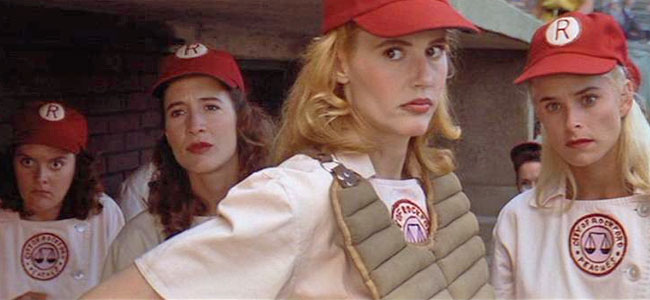The BBC has released a list of the “100 Greatest Comedies of All Time.” Of those 100 movies (101, actually, including one tie), only four are directed by women: Elaine May’s A New Leaf (#90), Vera Chytilová’s Daisies (#89), Maren Ade’s Toni Erdmann (#59), and Amy Heckerling’s Clueless (#34). The list is also nearly 100% white. I wish this were surprising, but it’s nothing new in the world “Best Of” lists.
To the credit of the BBC, they didn’t make the decisions. Rather, they asked 253 film critics from 52 countries for their top ten lists. Obviously, comedy is subjective. But we also have to acknowledge that by and large, there is a collective unconscious bias toward valuing work by white men. Even beyond the institutional bias that allows them to dominate the film industry, work made by and about women tends to be diminished in the eyes of critics and audiences.
Interestingly, in a companion article, the BBC breaks down the differences between the lists of male and female critics. While they’re overall very similar, there’s a striking difference in what they dub “the Clueless effect.” They found that “there are a handful of films, just 14, where a critic’s gender does seem to matter. The poll data showed that nine films are reliably more popular with men and five with women.” Clueless, When Harry Met Sally, What We Do in the Shadows, The Great Dictator, and Mean Girls were all overwhelmingly more popular with female critics. The Nutty Professor, Playtime, Animal House, Groundhog Day, Sherlock Jr, Sons of the Desert, Monty Python and the Holy Grail, Raising Arizona, and The General were all more popular with men. What moves those films from good to great in the eyes of a critic? What makes someone prefer Animal House to Clueless? Personal taste, sure. But we can’t pretend that things like representation and unconscious bias don’t play into that taste, or that “personal” taste isn’t largely influenced by larger cultural trends.
Again, comedy is incredibly subjective. So I’m not mad that my own favorites aren’t on the list. Well, besides the exclusion of Big, directed by Penny Marshall. That, objectively, is a travesty. But there are plenty of movies directed by women whose absence is surprising–plenty that deserve more celebration. On first look, I would happily swap out, say, There’s Something About Mary for A League of Their Own, or the South Park movie for Obvious Child, or maybe one of Woody Allen’s three spots for Monsoon Wedding.
But that’s just my own opinion. What would be on your list?
(image: Columbia Pictures)
Want more stories like this? Become a subscriber and support the site!
—The Mary Sue has a strict comment policy that forbids, but is not limited to, personal insults toward anyone, hate speech, and trolling.—










Published: Aug 22, 2017 06:39 pm